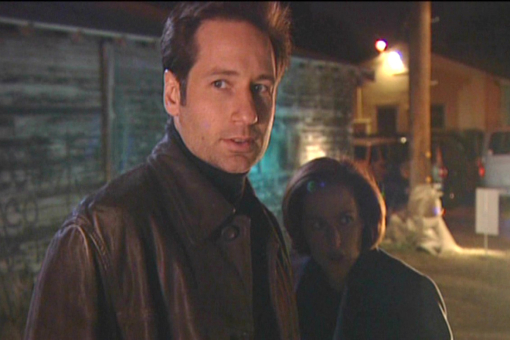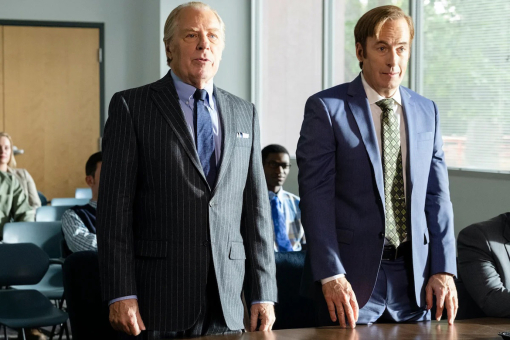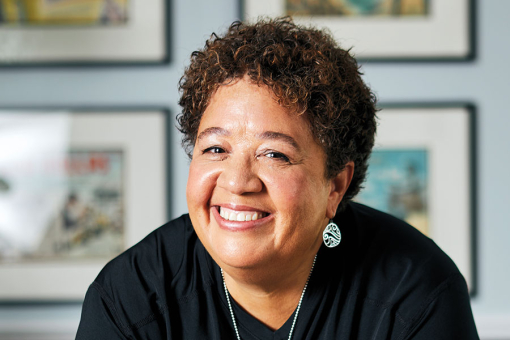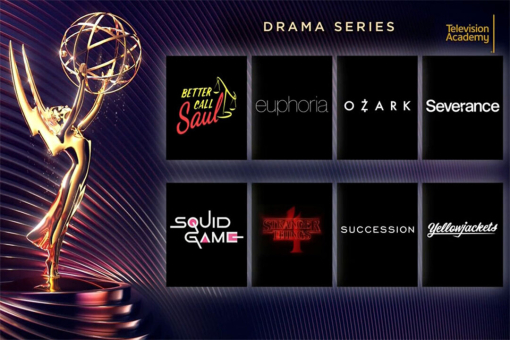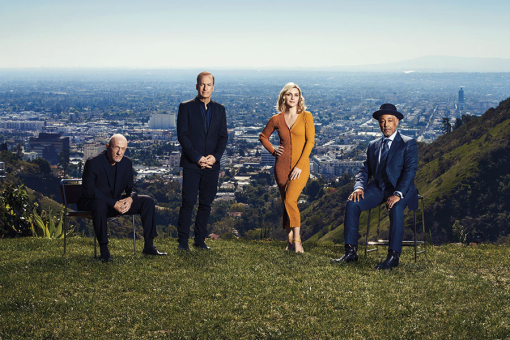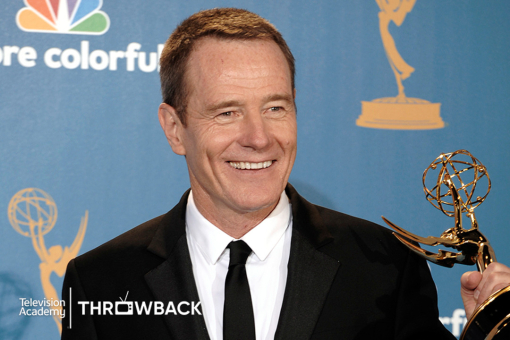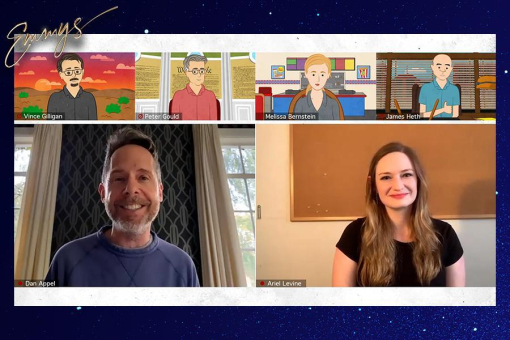Like its mothership show, Breaking Bad, Better Call Saul’s storylines often relied on intricate, process-oriented plots and schemes to create and deliver high-stakes drama. It’s ironic, then, that its creators struggled from the jump to figure out the plan for the spinoff’s premise.
"We asked questions like, 'What does this look like? Is it a drama? Is it a comedy? Is it an hour? Is it a half-hour?'" Saul cocreator and coshowrunner Vince Gilligan explains to the Television Academy. Gilligan directed Saul’s pilot and cowrote it with his longtime colleague Peter Gould, who created the law-bending huckster lawyer in season two of Breaking Bad. And it’s Gould that Gilligan credits with being the one to crack the case on who Saul Goodman was — or, rather, who he used to be on the way to becoming one of television’s most complex and compelling lawyers.
"Peter Gould put it best," Gilligan recalls. "He said, 'What problem does becoming Saul Goodman solve?'"
That seemingly simple question solved many of Gilligan and Gould’s story concerns for their Breaking Bad prequel. Once they figured out the tentpoles by which to weave Saul Goodman/Jimmy McGill’s storyline through, Gilligan and Gould executed that vision working as coshowrunners on the Emmy-nominated series. Gilligan would leave Saul early in season three to work on other projects, namely Netflix’s El Camino — a movie that served as a tension-filled epilogue for Jesse Pinkman's (Aaron Paul) storyline following the events of Breaking Bad’s series finale. (Gilligan returned to Saul's writer's room for the spinoff’s sixth and final season, but Gould was the sole showrunner).
In an exclusive interview to celebrate Better Call Saul's 10th anniversary, Gilligan unpacks their original pitch for the series, some alternate ideas for what the show could have been and how long walks in Toluca Lake helped the writers crack the story.
Television Academy: In regards to the Better Call Saul pilot, Jimmy makes a very "Ned Beatty in Network" entrance. He even quotes Beatty’s lines in that movie. Was it intentional to frame Jimmy’s entrance just like director Sidney Lumet shot Beatty's?
Vince Gilligan: Oh, yeah, very much so. We count on folks like yourself, who are very literate in terms of movies, to catch that. I was told, years ago, that homage is the French word for "rip off." [Laughs]. But [that shot] was very much meant to be an homage in the most respectful sense. When we would do stuff like that, these are little bonbons for the audience of movie lovers — who, like us, have this love and respect for all these great movies. So that was borrowing from Sidney Lumet. And those moments were very much purposeful.
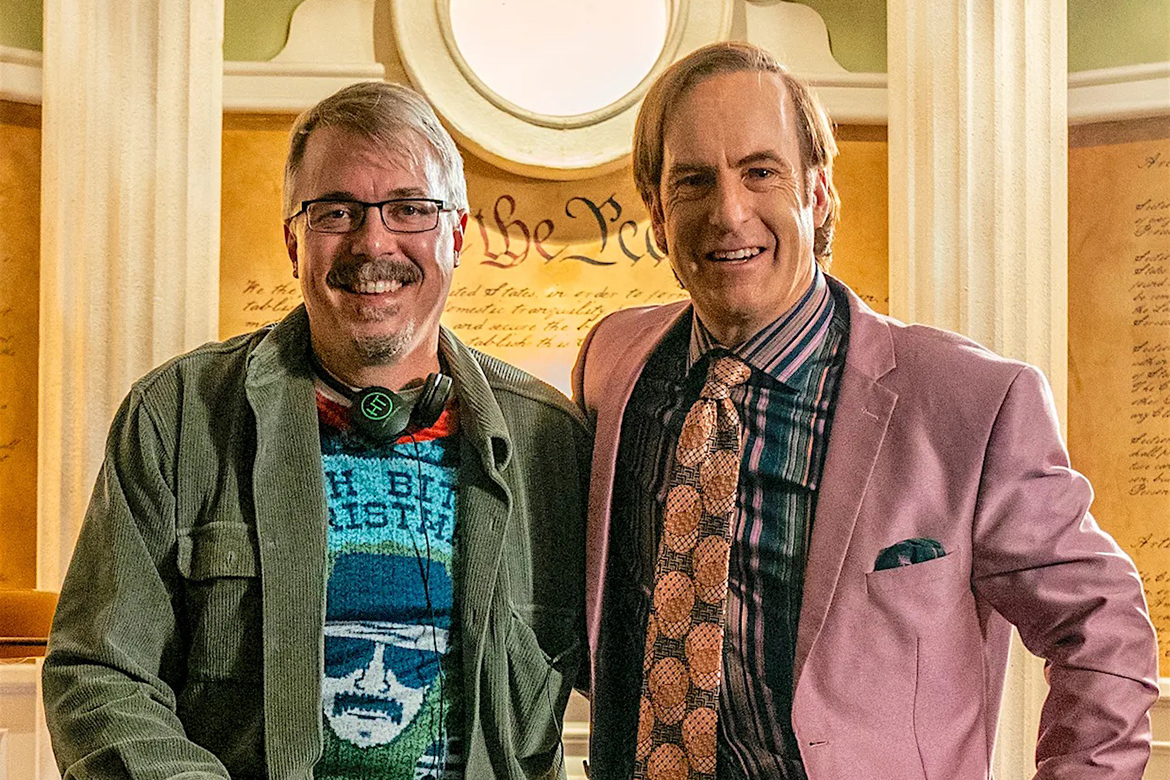
So, with this being a prequel series to Breaking Bad, how challenging was it for you and Peter to deliver stakes when the audience already knows many of the characters’ fates going in?
It was impossible. I mean, we went into this — we jumped off the cliff, into the darkness, without knowing what lay at the bottom. We felt like Breaking Bad had reached its conclusion. We felt like if we went another season on Breaking Bad, that would have been, oddly enough, not to reward the fans but to risk having them feel disappointed in a very dramatic way. And in terms of drama, I had very much reached its conclusion. We didn't want people thinking we were treading water just to make some more money. But we loved the idea of keeping the crew together. We wanted to keep the gang together. Peter Gould and I looked at each other and said, "Why don't we just do a Better Call Saul show? We'll have the best of both worlds." And we sold it to AMC and Sony like this, which never happens.
What was your pitch?
We said to them, "Hey, we have an idea — a prequel." Actually, we didn't even say "prequel" at the time. We said, "How about we do a spinoff series, Better Call Saul?" And everybody said, "Great." And the agents, executives — everybody, the lawyers — they started running around, getting all the contracts put together. And we just felt like, wow. We were feeling really good about ourselves. And then it suddenly dawned on us, "Hey, wait a minute, what the hell is the show?"
You didn’t really know what the show was going to be about at the time?
We did not know when we sold it. We had endless discussions, walking around Toluca Lake [in Los Angeles], walking around the neighborhood, where our offices were. We knew the title. What else do you call it other than Better Call Saul? That was a no-brainer. We asked questions like, “What does this look like? Is it a drama? Is it a comedy? Is it an hour? Is it a half-hour?”
How much time do you think the two of you spent brainstorming what the spine of the show would be?
We went around and around for maybe a full week, talking about — is [our show] like Dr. Katz, the animated TV show, where different people come into Dr. Katz's office? We said, "Maybe it's like Dr. Katz. We will have different people come in every week to Saul Goodman's office. The show will cost next to nothing, and we'll get a lot of cool comedy world people, like David Cross and whatnot; we’ll have them come in, and they've got a legal problem. And Saul Goodman helps them out. And it's a half-hour long." We kicked that around for a week or more.
It took us forever to figure it out — it felt like forever. And the pressure started to mount, because at that point, we had signed all the contracts.
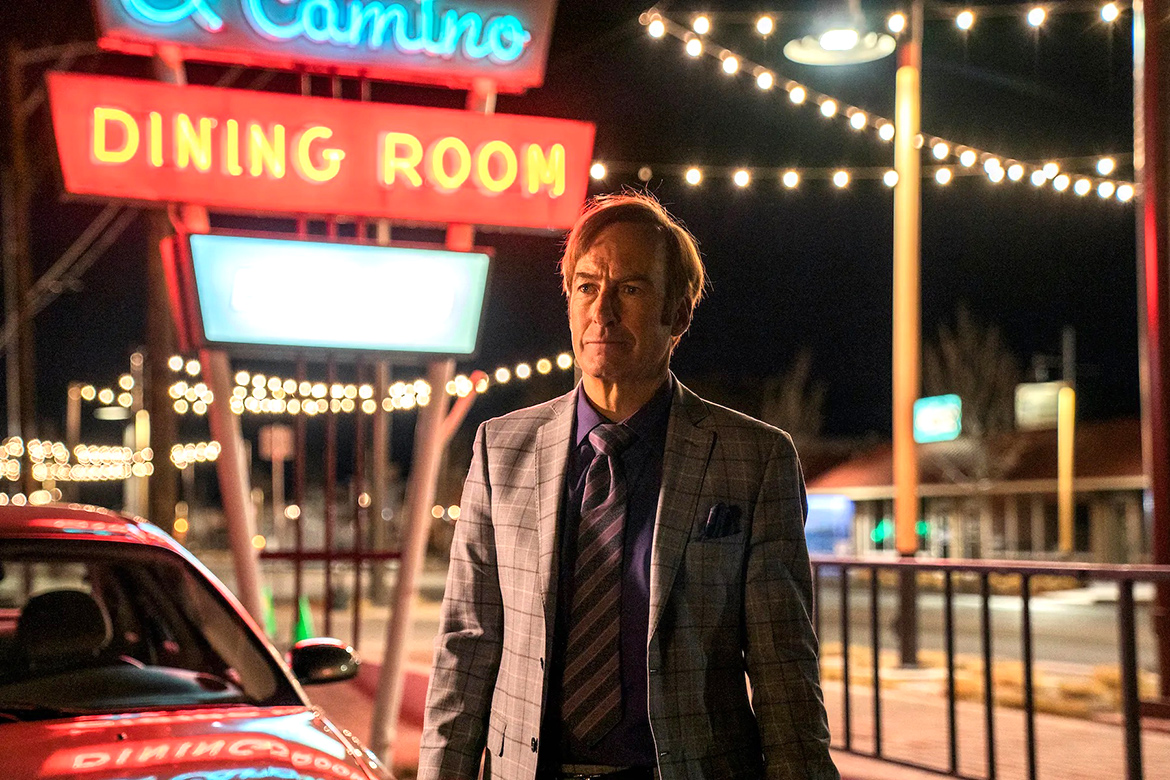
So you had to make something.
We had to make something. The idea of it being a prequel came relatively late in the process, but it dawned on us, dramatically speaking, that Saul Goodman is a tough guy to make a TV show about. Because, at least as he was portrayed on Breaking Bad, he was basically a happy-go-lucky guy. And happy people do not good drama make. It's hard to build comedy around someone who's comfortable in his own skin and who basically enjoys life, and who also enjoys sticking it to the man. So it dawned on us, "This is not going to work as a drama, but it probably won't work as a comedy either." We thought that because all good comedies have dramatic stakes, what are those going to be? And then it finally dawned on us, quite a ways into the process, that it should probably be a prequel. We knew his name was McGill — we knew that from the very first episode of Breaking Bad. We knew his real name was McGill. I don't even know if we knew his first name. I think we made that up in the prequel process.
What ultimately helped you and Peter unlock it?
Peter Gould put it best. He said, "What problem does becoming Saul Goodman solve?" I think he worded it even better than that, but that's the way I recall it. But he said, "If you're a guy named McGill, who were you before you were Saul Goodman? And why did you choose to turn into Saul Goodman? And what problem did you face in your life that becoming Saul Goodman solved?" Once Peter asked that riddle of himself and of me, then slowly but surely, it started to click together. But we didn't know what the hell this show was going to be when we said, "Let's do a show."
This interview has been edited for length and clarity.
Better Call Saul is streaming on Netflix.
For more insider insights from Vince Gilligan, dive into his in-depth discussion with The Interviews: An Oral History of Television, to discover how he crafted some of TV’s most gripping stories. Watch now here.


